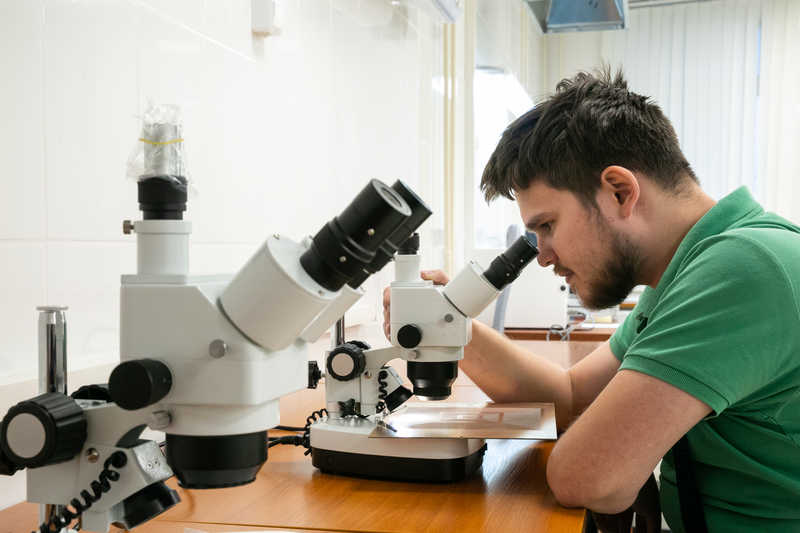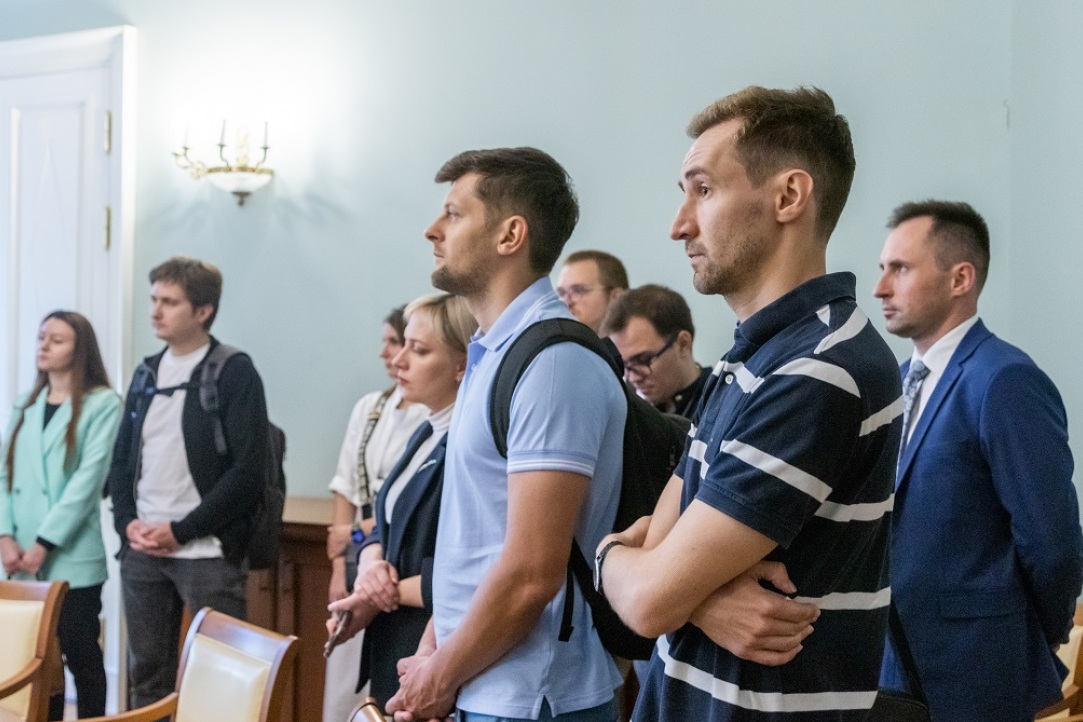
Mathematicians from HSE University–Nizhny Novgorod Solve 57-Year-Old Problem
In 1968, American mathematician Paul Chernoff proposed a theorem that allows for the approximate calculation of operator semigroups, complex but useful mathematical constructions that describe how the states of multiparticle systems change over time. The method is based on a sequence of approximations—steps which make the result increasingly accurate. But until now it was unclear how quickly these steps lead to the result and what exactly influences this speed. This problem has been fully solved for the first time by mathematicians Oleg Galkin and Ivan Remizov from the Nizhny Novgorod campus of HSE University. Their work paves the way for more reliable calculations in various fields of science. The results were published in the Israel Journal of Mathematics (Q1).

From Neural Networks to Stock Markets: Advancing Computer Science Research at HSE University in Nizhny Novgorod
The International Laboratory of Algorithms and Technologies for Network Analysis (LATNA), established in 2011 at HSE University in Nizhny Novgorod, conducts a wide range of fundamental and applied research, including joint projects with large companies: Sberbank, Yandex, and other leaders of the IT industry. The methods developed by the university's researchers not only enrich science, but also make it possible to improve the work of transport companies and conduct medical and genetic research more successfully. HSE News Service discussed work of the laboratory with its head, Professor Valery Kalyagin.

'Science Knows No National Borders'
Foreign scientists successfully continue their work in HSE University laboratories, combining fundamental and applied research to achieve significant results. HSE News Service has spoken to Professor Panos Pardalos, Head of the Laboratory of Algorithms and Technologies for Networks Analysis at HSE University in Nizhny Novgorod, about its work.

'The Branch of Medicine That Our Developments Primarily Target Is Cardiology'
The application of mathematical models to the diagnosis and treatment of cardiovascular diseases contributes to the effective detection of patient predispositions and supports the selection of best treatment strategies. The use of mathematical models helps create new diagnostic tools and train neural networks to assist clinicians. Researchers from HSE University and colleagues from Saratov State Medical University are engaged in this work as part of the Mirror Laboratories project. In this interview, Natalya Stankevich, Senior Research Fellow at the International Laboratory of Dynamical Systems and Applications of the HSE Campus in Nizhny Novgorod, talks about what the collaboration has achieved so far.

Winners of New RSF Awards Include Projects from Four Campuses of HSE University
The Russian Science Foundation has completed its review of projects submitted for grants to support fundamental and exploratory research by teams, as well as 2022 grant winners applying for project extensions. In addition, interdisciplinary projects for fundamental and exploratory research awarded under the Presidential funding programme have been announced. Projects awarded under each of the three categories include submissions from researchers at all four campuses of HSE University.

Winners of New RSF Awards Include Projects from Four Campuses of HSE University
The Russian Science Foundation has completed its review of projects submitted for grants to support fundamental and exploratory research by teams, as well as 2022 grant winners applying for project extensions. In addition, interdisciplinary projects for fundamental and exploratory research awarded under the Presidential funding programme have been announced. Projects awarded under each of the three categories include submissions from researchers at all four campuses of HSE University.

Hi-Tech Grief: HSE Researchers Explore the Pros and Cons of Digital Commemoration
Researchers at HSE University in Nizhny Novgorod have explored how technological advancements are transforming the ways in which people preserve the memory of the deceased and significant events. Digital technologies enable the creation of virtual memorials, the preservation of personal stories and belongings of the deceased, interaction with their digital footprint, and even the development of interactive avatars based on their online activity. However, these technologies not only evoke nostalgia and provide a sense of relief but can also heighten anxiety and fear, and delay the process of accepting loss. The study has been published in Chelovek (The Human Being).

Researchers at HSE Centre for Language and Brain Reveal Key Factors Determining Language Recovery in Patients After Brain Tumour Resection
Alina Minnigulova and Maria Khudyakova at the HSE Centre for Language and Brain have presented the latest research findings on the linguistic and neural mechanisms of language impairments and their progression in patients following neurosurgery. The scientists shared insights gained from over five years of research on the dynamics of language impairment and recovery.

Researchers at HSE Centre for Language and Brain Reveal Key Factors Determining Language Recovery in Patients After Brain Tumour Resection
Alina Minnigulova and Maria Khudyakova at the HSE Centre for Language and Brain have presented the latest research findings on the linguistic and neural mechanisms of language impairments and their progression in patients following neurosurgery. The scientists shared insights gained from over five years of research on the dynamics of language impairment and recovery.

HSE University Welcomes a New Group of Postdocs
This autumn, 55 early-career researchers will start working at HSE University's campuses in Moscow, St. Petersburg, Nizhny Novgorod, and Perm. All of them have undergone a rigorous selection process and aim to make significant progress in both science and personal development during their participation in the Russian Postdoctoral Fellowship Programme. This year, in addition to PhDs who are Russian citizens, HSE University welcomes their colleagues from Poland, Kazakhstan, and India who have earned their academic degrees from Russian universities. On September 17-18, orientation events were held for them at HSE University.

